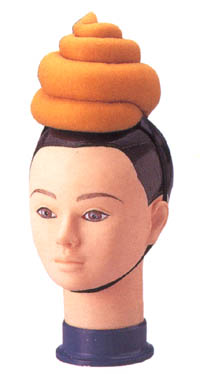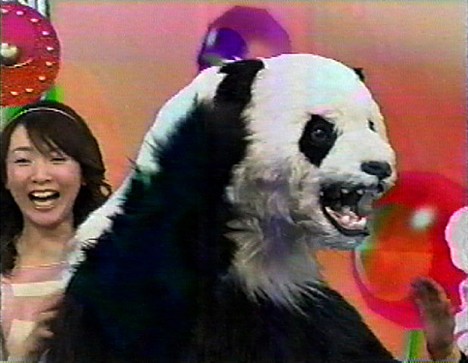 "It?s dirty, but everyone is interested in poop. I wanted to give it a try," says Michinori Ueda, director of Himeji City Science Museum, which is hosting an exhibit that delves into the world of excrement. Entitled Za Unchi-ten ("The Poop Exhibit"), the exhibit showcases the dung of 100 animals and provides displays that explore the relationship between feces and health.
"It?s dirty, but everyone is interested in poop. I wanted to give it a try," says Michinori Ueda, director of Himeji City Science Museum, which is hosting an exhibit that delves into the world of excrement. Entitled Za Unchi-ten ("The Poop Exhibit"), the exhibit showcases the dung of 100 animals and provides displays that explore the relationship between feces and health.
Display cases containing an array of droppings of various shapes and sizes provide visitors a unique viewing experience. The droppings were obtained from the local zoo and aquarium, from animals ranging from elephants and ostriches to hippos and snails. Each sample, which has been freeze-dried and hardened with resin to eliminate the smell, is accompanied by photos and information about its "producer."
Other attractions include the fossilized dung (coprolite) of plant-eating dinosaurs, information about the Hebeloma radicosum mushroom and other fungi that grow from dung heaps, and dung beetle specimens. The exhibit also features an display explaining what happens to food inside our bodies after we eat it.
Visitors to the exhibit have had a variety of responses. ?The beetle poop was cute,? said one visitor.
On his occasional strolls through the exhibit, Ueda explains to visitors how the color similarity between bird and reptile feces indicates their close relationship to each other. Ueda notes that only the lion droppings still smell, even though they were freeze-dried and hardened along with the other samples.
"The exhibit should make people think about how nature works in cycles," says Ueda, "and it should cause visitors to think about why different foods and animals produce different feces."
The exhibit will be held until June 18 (the museum is closed on Mondays). Admission is free. There is no word on what sort of souvenirs will be available in the gift shop.
[Source: Asahi Shimbun]

